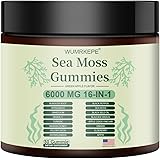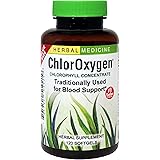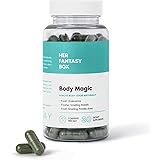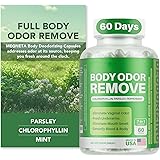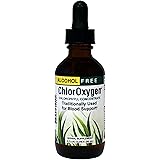The human body’s stress response is a remarkable system designed for survival, but in today’s fast-paced world, it can often become overactive. The primary player in this response is cortisol, often referred to as the “stress hormone.” While essential for regulating metabolism, inflammation, and memory, chronically elevated cortisol levels can lead to a cascade of negative health effects, from weight gain and fatigue to impaired immunity and mood disorders. Understanding how to manage and reduce cortisol is crucial for long-term health and well-being.
The insightful video above offers seven practical tips to help keep your cortisol levels in check. Building upon those foundational recommendations, this article delves deeper into each strategy, providing additional context, actionable advice, and the scientific rationale behind why these methods are so effective in promoting overall health and stress resilience.
Embrace Regular Physical Activity to Manage Stress Hormones
One of the most potent ways to combat high cortisol is through consistent exercise. Engaging in regular physical activity, particularly aerobic exercises, serves as a powerful antidote to stress. When you exercise, your body releases endorphins, natural mood elevators that can help reduce feelings of anxiety and depression. Furthermore, physical activity helps your body become more efficient at handling stress, essentially training your physiological systems to recover more quickly from stress responses.
- Aerobic Exercises: Activities like jogging, swimming, brisk walking, cycling, or dancing are excellent choices. Aim for at least 150 minutes of moderate-intensity aerobic activity or 75 minutes of vigorous-intensity activity per week, as recommended by health organizations.
- Strength Training: Incorporating strength training a few times a week also contributes to overall fitness, muscle building, and can indirectly support stress reduction by improving body image and physical capabilities.
- Mindful Movement: Practices like yoga and Tai Chi combine physical activity with mindfulness, offering a dual benefit for both body and mind, helping to lower cortisol more directly.
Research consistently shows that individuals who exercise regularly tend to have lower baseline cortisol levels and better stress coping mechanisms. This isn’t just about burning calories; it’s about providing a healthy outlet for pent-up energy and chemical responses associated with stress.
Nourish Your Body with a Balanced Diet
What you eat plays a significant role in your body’s stress response and ability to reduce cortisol. A balanced diet rich in whole foods supports overall physiological function, which in turn helps regulate hormones.
- Omega-3 Fatty Acids: Foods like fatty fish (salmon, mackerel, sardines) and avocados are rich in omega-3s, which are known for their anti-inflammatory properties and their role in brain health. Studies indicate that omega-3s can help reduce anxiety and improve mood, indirectly impacting cortisol levels.
- Antioxidant-Rich Vegetables: Broccoli, along with other cruciferous vegetables, provides essential vitamins, minerals, and antioxidants. These nutrients help combat oxidative stress, which can be exacerbated by chronic high cortisol.
- Probiotics for Gut Health: Sauerkraut and other fermented foods (kimchi, yogurt, kefir) contain beneficial probiotics that support a healthy gut microbiome. A robust gut-brain axis is increasingly recognized for its influence on mood and stress, with evidence suggesting a link between gut health and cortisol regulation.
- Avoid Excessive Sugar: High sugar intake leads to blood sugar spikes and crashes, which can trigger the release of cortisol as the body tries to stabilize glucose levels. Processed foods and sugary drinks contribute to inflammation and can disrupt hormonal balance, making it harder to manage stress effectively. Focus on complex carbohydrates, lean proteins, and healthy fats instead.
A diet focused on nutrient density helps stabilize blood sugar, reduces inflammation, and provides the building blocks for neurotransmitters that promote calm and well-being, all contributing to a more balanced cortisol response.
Prioritize 7-9 Hours of Quality Sleep
Sleep is arguably one of the most critical factors in cortisol regulation. The video rightly emphasizes the importance of 7-9 hours of sleep every night. Our bodies follow a circadian rhythm, and cortisol levels naturally fluctuate throughout the day, peaking in the morning and gradually decreasing towards evening to facilitate sleep. Chronic sleep deprivation disrupts this delicate balance, leading to elevated evening cortisol levels and difficulty winding down.
Poor sleep can also increase insulin resistance, which in turn can lead to higher cortisol. To optimize your sleep and support healthy cortisol reduction:
- Maintain a Consistent Schedule: Go to bed and wake up at roughly the same time each day, even on weekends.
- Create a Relaxing Bedtime Routine: This might include a warm bath, reading a book, or gentle stretching.
- Optimize Your Sleep Environment: Ensure your bedroom is dark, quiet, and cool. Block out light, use earplugs if needed, and set your thermostat to a comfortable temperature (usually 60-67°F or 15-19°C).
- Limit Screen Time: The blue light emitted from electronic devices can interfere with melatonin production, the hormone that signals your body it’s time to sleep. Avoid screens at least an hour before bed.
Studies have repeatedly shown a direct correlation between sleep duration and quality, and the body’s ability to effectively manage stress hormones. Consistent, restorative sleep is a cornerstone of effective cortisol management.
Cultivate Calm with Mindfulness, Meditation, and Yoga
Practices that engage the mind-body connection are exceptionally powerful for stress reduction. Mindfulness, meditation, and yoga are tools that help individuals shift from a sympathetic (fight-or-flight) response to a parasympathetic (rest-and-digest) state, directly influencing cortisol release.
- Mindfulness: This involves focusing on the present moment without judgment. Simple mindful breathing exercises, where you pay attention to the sensation of your breath, can be done anywhere, anytime, to quickly calm the nervous system.
- Meditation: Regular meditation practice has been shown to reduce cortisol levels, lower blood pressure, and even alter brain structures associated with emotional regulation. Even 10-15 minutes a day can yield significant benefits. Apps like Calm or Headspace can guide beginners.
- Yoga: Combining physical postures, breathing exercises, and meditation, yoga offers a holistic approach to stress relief. Specific poses and breathing techniques are known to stimulate the vagus nerve, which plays a key role in the parasympathetic nervous system, leading to a reduction in stress hormones.
Research from institutions like Harvard Medical School highlights how these practices can fundamentally change the brain’s response to stress, making individuals more resilient to stressors and less prone to chronic cortisol elevation.
Moderate Your Caffeine Intake
While a morning cup of coffee might seem essential for many, caffeine is a stimulant that can temporarily increase cortisol levels. It works by blocking adenosine, a neurotransmitter that promotes relaxation and sleepiness. This blockade, while providing a jolt of alertness, can also put your adrenal glands into overdrive, especially when consumed in large quantities or late in the day.
For individuals sensitive to caffeine or those already experiencing chronic stress, moderation is key. Consider:
- Limiting Daily Intake: Aim for no more than 200-400 milligrams of caffeine per day (roughly 2-4 cups of coffee, depending on strength).
- Timing Consumption: Avoid caffeine after midday, as its half-life can be several hours, interfering with sleep and potentially causing nighttime cortisol spikes.
- Alternative Beverages: Explore herbal teas (chamomile, peppermint, rooibos) or decaffeinated options if you enjoy the ritual of a warm drink.
Monitoring your own reaction to caffeine is crucial. If you feel jittery, anxious, or experience sleep disturbances, it’s a clear signal to reduce your intake to better manage your body’s stress response.
Cultivate Connections and Embrace Nature
Humans are social creatures, and genuine connection with others is a powerful buffer against stress. Spending quality time with family and friends can release oxytocin, often called the “love hormone,” which counteracts the effects of cortisol and promotes feelings of calmness and bonding.
Furthermore, immersing yourself in nature provides a unique form of stress relief. The concept of “forest bathing” (Shinrin-yoku) from Japan illustrates how simply being in a natural environment can significantly lower cortisol levels, blood pressure, and heart rate, while boosting mood and immune function.
- Prioritize Social Engagement: Schedule regular meetups, call loved ones, or join clubs and groups that align with your interests. Genuine social support networks are protective against chronic stress.
- Seek Green Spaces: Spend time in parks, gardens, forests, or by bodies of water. Even a short walk in a natural setting can reduce rumination and improve mental clarity.
- Combine Both: Consider walks with friends in a park or having a picnic with family outdoors to maximize the benefits.
These activities help to shift focus away from stressors, provide perspective, and foster a sense of belonging and peace, all essential for lowering the body’s primary stress hormone.
When Chronic Stress Persists, Consider Professional Help
While lifestyle adjustments are incredibly effective for many, there are times when chronic stress becomes overwhelming and persistent, indicating a need for professional intervention. If you find yourself constantly overwhelmed, experiencing significant anxiety, depression, or physical symptoms that don’t respond to lifestyle changes, consulting a mental health professional is a vital step.
Mental health professionals, such as therapists, counselors, or psychiatrists, can:
- Diagnose Underlying Issues: They can help identify if your chronic stress is a symptom of an underlying condition like generalized anxiety disorder, depression, or a trauma-related disorder.
- Provide Coping Strategies: Therapies like Cognitive Behavioral Therapy (CBT) can equip you with practical tools to reframe negative thought patterns and manage stress more effectively. Dialectical Behavior Therapy (DBT) can help with emotional regulation.
- Offer Medication Options: In some cases, medication might be recommended to help manage severe symptoms, allowing you to engage more effectively with therapy and lifestyle changes.
- Provide Objective Support: A professional offers a safe space to process emotions and develop long-term resilience strategies without judgment.
Seeking professional help for chronic stress is a sign of strength, not weakness. It’s an investment in your mental and physical health, providing tailored strategies to effectively reduce cortisol and reclaim your well-being.



